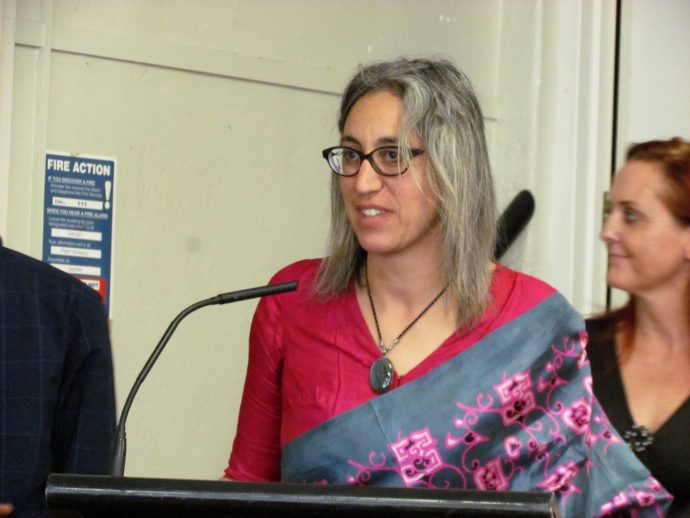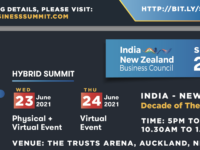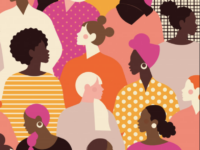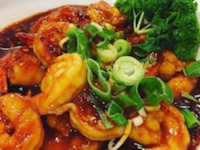‘Trust each other’ and ‘aim for inclusivity’
Shirin Brown is a British/ Indian migrant who was elected to the Waiheke Local Board for 6 years from 2013-2019. She is currently looking to stand for Parliament on a Labour ticket.
Migrant Views NZ caught up with Brown to ask a few curious questions. The following are excerpts from our conversation.
Why are you standing for Labour?
I’m really impressed by Jacinda Ardern’s ability to bring people together and to start conversations around doing government a bit differently. For example, the way she dealt with the Mosque attacks and running a coalition government, which I’m sure has different perspectives, but which pulls in the same direction.
I also like the emphasis on social justice and working collectively for the benefit of all New Zealanders that is the bedrock of Labour policy. Lastly, I think we’ve had great gains in terms of spending on health and schools under this government, while also being fiscally responsible. So it’s not about spending more, but making different spending decisions that benefit society. The bedrock of New Zealand society is small businesses and independent contractors so we also need to make sure that as we move into the future there are meaningful employment opportunities for people.
With six years of local government experience, I also feel we need to have stronger links between Central and Local government and I feel I’m ideally placed to help build those bridges because I know some of the key players and the landscape.
I’m not sure how hard it would be, and I know others have tried, but I’d love to work on a school for Central Auckland. If we’re building a city of the future, key amenities need to be located near where people are.
I also think there’s huge potential to increase voter turnout. It was 79% at the last election but there are certainly opportunities to increase the vote with people who are foreign born and students, both demographics that are poorly represented in voter statistics.
Lastly I think one of our biggest challenges as a nation is addressing inclusivity and making New Zealand a place where everyone feels they belong and can contribute. As someone who has experience of dealing with different cultures I feel I can add to this conversation.
Auckland Central being perhaps the most diverse constituency in the entire country, which ethnicity do you identify with yourself?
My mother is Parsi from India, my father is British but grew up in South Africa. I was born in Iran, I grew up mostly in France and Belgium, and went to University in England. The father of my children is from Israel, but his parents were Jewish from Morocco. My children have grown up in New Zealand. So I feel a mix of different things – very much European, but there are traces of Indian in me from my mother and culturally there are traces of the places I’ve lived and worked. Like many Indians I am a third culture child and part of the Indian diaspora.
What are your views on diversity?
I think we should be aiming for inclusivity. Appreciating the differences we all have in terms of those identifiable dimensions of difference, whether in terms of gender, ethnicity, race, class or differences in ability but also in terms of personality. However, we should then aim to be more accepting and tolerant of everyone’s contribution. In general, people are very quick to judge each other and look for differences and inadequacies, rather than points of connection and agreement. I think the younger generations are in general more tolerant and accepting. I’m definitely hearing that people want more kindness and working with common ground in business and in politics, rather than always trying to compete.
On another point, I like to draw attention to issues of diversity and difference in a gentle way. In the 2016 election, I asked people on Facebook which of the two attached pictures I should use in my election campaign for local government. I was quite surprised that people answered this seriously, but also focused on which picture was better, rather than stating the obvious which is that a head covering on a candidate photo would never get me elected.
It started a great conversation with one person putting up ‘Vote for Shirin Brown in Arabic’ and someone else making a bunch of film posters of me.
I also made a point of wearing a salwar kameez when I was elected in 2013, and a sari in 2016. I look a bit awkward when I wear a sari. So that must make Indian people who do wear them, laugh, but I think it’s the thought that counts. Planting the seed that we are all New Zealanders, but have come here via different paths.
In general, I think we should have fun with elections. Why is it always so dry and boring? No wonder no-one takes an interest. Our billboards should be way more interesting, which is why I made a real effort to engage people through my advertising for the local board.
Would you like to comment on the solidarity shown at the Christchurch scarf day?
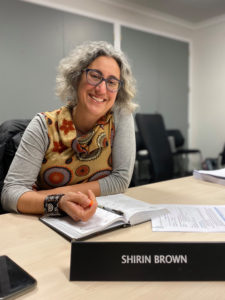
Like the rest of the country I was shocked that this could happen here, especially as New Zealand is a place where we are so tolerant on many levels and where people have a live and let live attitude. I wore a headscarf too all day. While the country in general was very empathetic, women who wore the hijab found there was an increase in racist comments towards them around this time. So I wore it in solidarity, but also to demystify the act of wearing a scarf.
Our Muslim population is incredibly diverse and made up in about equal parts of people from Asia (probably mostly Malaysia and Singapore), the Pacific (probably mostly Fijian Indians), the Middle East (where the main religion is Islam) and New Zealand born (who are a mix of children of all of the above but also include Pakeha New Zealanders). So the shock waves of practising one’s religion peacefully and becoming a target was very frightening.
Interestingly, the same day I attended an important Buddhist function as a Buddhist practice, but I was still wearing the hijab. I think it made people feel very uneasy as perhaps they thought I would make trouble and did not realise it was a statement of solidarity. At the same time I thought: what if this had been us and some crazy person had come into our Buddhist teaching and shot everyone?
It does make me sad that wearing the hijab is so contested and everyone feels they should have a view. People should be able to dress how they like for whatever reason they like and not be judged for it. However, I was very proud to be a New Zealander and to see the way our Prime Minister dealt with it and how people on the street made it clear that this is not who we are as New Zealanders.
How do you think biculturalism helps uphold the diversity and solidarity of the land?
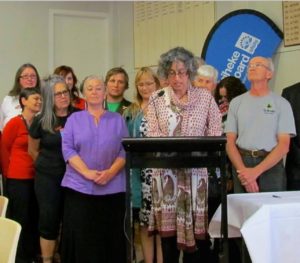
I do think that New Zealand is a young nation. We need to be thinking about how all of us fit into New Zealand culture, recognise biculturalism and carve out a space for multiculturalism as well. I don’t think it’s enough to say we are simply multicultural because we need to recognise that this country already has an embedded ethnic and racial inequality, which should not be covered by simply talking about multiculturalism.
This brings us back to inclusivity. We need to celebrate our differences, but recognise we all have valuable perspectives and contributions to share. I think we need to spend more time talking about these things in schools, in our communities, at work and on the marae.


